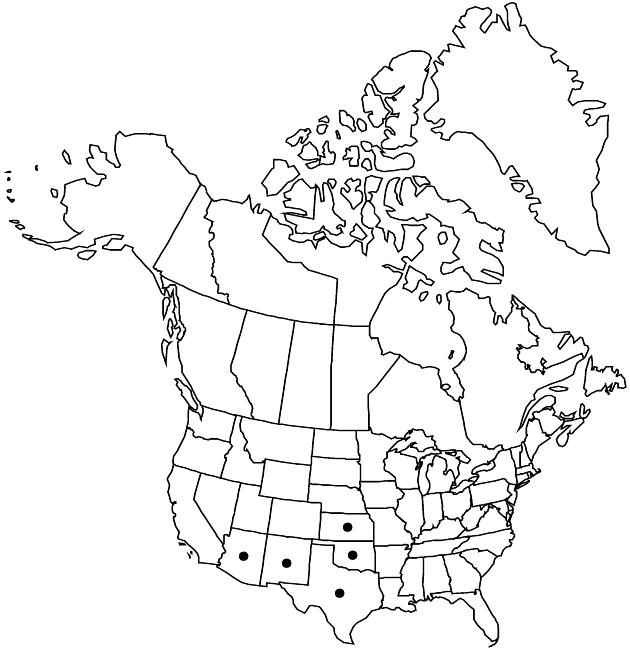Difference between revisions of "Erigeron modestus"
Mem. Amer. Acad. Arts, n. s. 4: 68. 1849.
FNA>Volume Importer |
imported>Volume Importer |
||
| (One intermediate revision by the same user not shown) | |||
| Line 59: | Line 59: | ||
|publication year=1849 | |publication year=1849 | ||
|special status= | |special status= | ||
| − | |source xml=https:// | + | |source xml=https://bitbucket.org/aafc-mbb/fna-data-curation/src/2e0870ddd59836b60bcf96646a41e87ea5a5943a/coarse_grained_fna_xml/V19-20-21/V20_784.xml |
|tribe=Asteraceae tribe Astereae | |tribe=Asteraceae tribe Astereae | ||
|genus=Erigeron | |genus=Erigeron | ||
Latest revision as of 20:05, 5 November 2020
Perennials (sometimes flowering early and appearing annual or biennial), 8–40 cm; usually taprooted (taproots woody or lignescent, early season forms sometimes fibrous-rooted), caudices usually woody, sometimes branched. Stems (often multiple from bases; of previous year often persistent) ascending to spreading (proximally reddish in early season, sometimes proximally woody or lignescent), loosely strigose to villous (proximal hairs sometimes spreading), often sparsely glandular. Leaves basal (often withering by late flowering) and cauline; blades oblanceolate to spatulate, 20–50(–100) × 3–7(–18) mm, gradually reduced distally, margins entire or with 1–2(–3) pairs of teeth, faces loosely strigose (hairs ascending), eglandular. Heads 1(–3+, –50 in later season, branches at first from midstem or proximally, later more distal). Involucres 3–4.5 × 6–9(–12) mm. Phyllaries in 2–3 series, sparsely to moderately hirsute, minutely glandular. Ray florets 24–65(–170); corollas white, often with abaxial midstripe, often drying lilac, 4–7(–11) mm, laminae not coiling or reflexing. Disc corollas 1.7–3.1 mm (throats indurate and slightly inflated). Cypselae 1.1–1.4 mm, 2-nerved, faces sparsely strigose; pappi: outer of setae, inner of (5–)12–17 bristles. 2n = 27, 36.
Phenology: Flowering (Mar–)Apr–Jun(–Oct).
Habitat: Rocky or gravelly sites, sand, clay, limestone, granite, sometimes deep sand, often with oak or oak-juniper, shrubland
Elevation: 200–1700(–2300) m
Distribution

Ariz., Kans., N.Mex., Okla., Tex., Mexico (Coahuila, Chihuahua, Nuevo Leon).
Discussion
Erigeron modestus is a polyploid complex apparently incorporating genes from E. flagellaris, E. tracyi, elements of E divergens, and the Mexican E. pubescens Kunth; arbitrary identifications may be necessary. In most of its range in Texas, E. modestus is not sympatric with any of those other taxa. Forms flowering in early season (Mar–Apr) often have stems red at the bases, dentate basal leaves 30–60(–100) × 5–10(–18) mm, and single, relatively large heads (involucres 9–12 mm diam, ray florets 50–170, corollas 6.5–11 mm) on ebracteate peduncles 5–15 cm. Later season plants have nearly intricately branched stems with more numerous, much smaller, diffusely arranged heads.
Selected References
None.